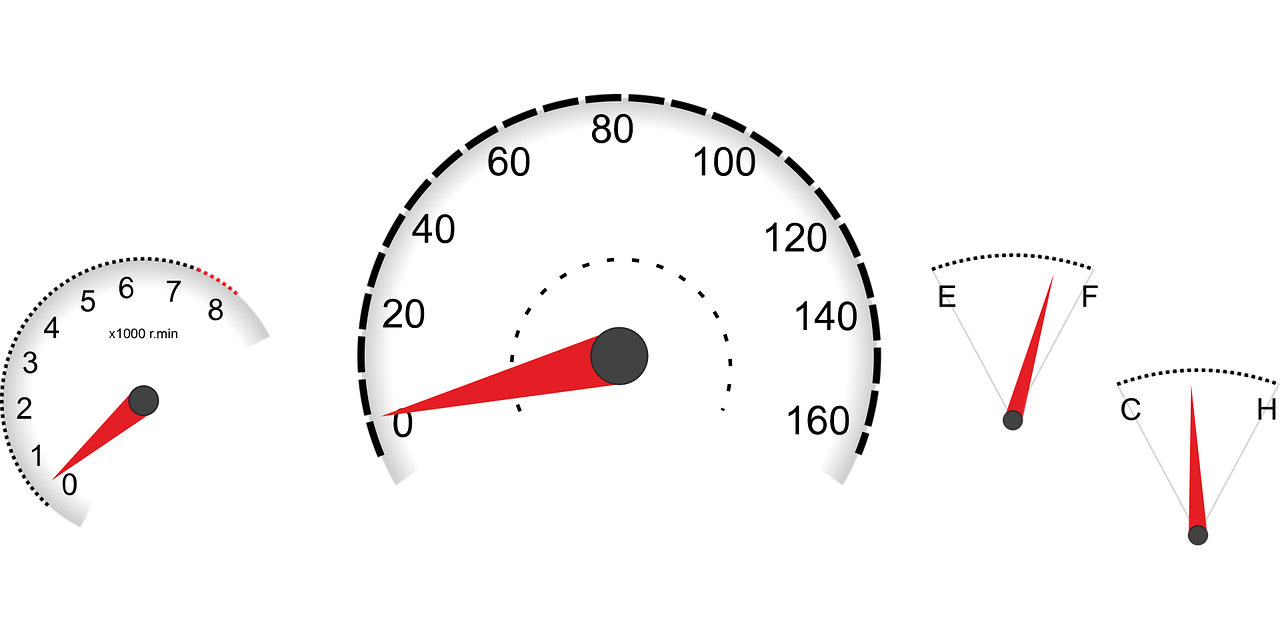
09
The Ultimate Guide to Speed Measurements: Understanding and Converting Speed Units
Speed is a fundamental concept in our daily lives, and understanding how to measure and convert speed units is essential for various fields. This comprehensive guide covers the basics of speed measurements, common units, practical applications, and conversion methods. Whether you're an engineer, athlete, or just curious, this guide will help you navigate the world of speed measurements with ease.
Speed is a fundamental concept in our daily lives, whether we're driving a car, running a race, or simply observing the world around us. Understanding speed measurements and how to convert between different units is essential for various fields, including engineering, sports, and everyday tasks. This comprehensive guide will help you grasp the basics of speed measurements and provide you with the tools to convert between different units effortlessly.
What is Speed?
Speed is the rate at which an object moves. It is a scalar quantity, meaning it only has magnitude and no direction. Speed is typically measured in units of distance per unit of time, such as kilometers per hour (km/h), miles per hour (mph), meters per second (m/s), and feet per second (ft/s).
Common Units of Speed
- Kilometers per Hour (km/h): This is the most commonly used unit of speed in countries that use the metric system. It measures the number of kilometers an object travels in one hour.
- Miles per Hour (mph): This unit is commonly used in countries that use the imperial system, such as the United States and the United Kingdom. It measures the number of miles an object travels in one hour.
- Meters per Second (m/s): This is the standard unit of speed in the International System of Units (SI). It measures the number of meters an object travels in one second.
- Feet per Second (ft/s): This unit is used in some engineering and technical fields. It measures the number of feet an object travels in one second.
- Knots (kn): This unit is commonly used in aviation and maritime contexts. It measures the number of nautical miles an object travels in one hour.
Converting Between Speed Units
Converting between different speed units is a common requirement in various fields. Here are some common conversions:
- Kilometers per Hour to Miles per Hour: To convert km/h to mph, multiply the speed by 0.621371.
Speed (mph)=Speed (km/h)×0.621371\text{Speed (mph)} = \text{Speed (km/h)} \times 0.621371
- Miles per Hour to Kilometers per Hour: To convert mph to km/h, multiply the speed by 1.60934.
Speed (km/h)=Speed (mph)×1.60934\text{Speed (km/h)} = \text{Speed (mph)} \times 1.60934
- Meters per Second to Kilometers per Hour: To convert m/s to km/h, multiply the speed by 3.6.
Speed (km/h)=Speed (m/s)×3.6\text{Speed (km/h)} = \text{Speed (m/s)} \times 3.6
- Kilometers per Hour to Meters per Second: To convert km/h to m/s, divide the speed by 3.6.
Speed (m/s)=Speed (km/h)÷3.6\text{Speed (m/s)} = \text{Speed (km/h)} \div 3.6
- Feet per Second to Meters per Second: To convert ft/s to m/s, multiply the speed by 0.3048.
Speed (m/s)=Speed (ft/s)×0.3048\text{Speed (m/s)} = \text{Speed (ft/s)} \times 0.3048
- Meters per Second to Feet per Second: To convert m/s to ft/s, multiply the speed by 3.28084.
Speed (ft/s)=Speed (m/s)×3.28084\text{Speed (ft/s)} = \text{Speed (m/s)} \times 3.28084
- Knots to Kilometers per Hour: To convert knots to km/h, multiply the speed by 1.852.
Speed (km/h)=Speed (kn)×1.852\text{Speed (km/h)} = \text{Speed (kn)} \times 1.852
- Kilometers per Hour to Knots: To convert km/h to knots, divide the speed by 1.852.
Speed (kn)=Speed (km/h)÷1.852\text{Speed (kn)} = \text{Speed (km/h)} \div 1.852
Practical Applications of Speed Measurements
Understanding and converting speed measurements is crucial in various fields:
- Engineering: Engineers often need to convert speed measurements for design and analysis projects. For example, converting the speed of a conveyor belt from meters per second to feet per second.
- Sports: Athletes and coaches use speed measurements to track and compare performance metrics. For example, converting a runner's speed from kilometers per hour to miles per hour.
- Everyday Tasks: Speed conversions are useful in everyday tasks, such as converting the speed limit from miles per hour to kilometers per hour when traveling abroad.
Using Online Speed Converter Tools
Online speed converter tools, like the one available on toolsbox.cloud, make it easy to convert between different speed units. These tools provide quick and accurate results, saving you time and effort. Simply input the value you want to convert, select the units, and view the converted value instantly.
Conclusion
Speed measurements are an integral part of our daily lives, and understanding how to convert between different units is essential for various applications. By mastering these conversions, you can ensure accuracy in your work and make informed decisions. Whether you're an engineer, athlete, or just someone who loves to learn, this guide will help you navigate the world of speed measurements with ease.
Contact
Missing something?
Feel free to request missing tools or give some feedback using our contact form.
Contact Us